History
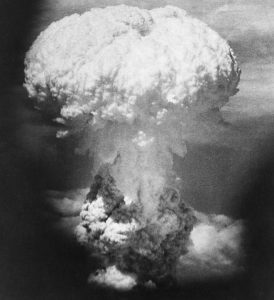 There have always been wars, and wars include bombs of some kind. It is a fact that everyone seems to understand, and to a degree accept. I suppose they look at it as collateral damage, but the reality is that it is people, property, homes, and businesses. Sometimes I wonder if mankind will ever get to a point where collateral damage is too much to pay. Of course, that will not happen. War means death and destruction, and there will be wars as long as time endures.
There have always been wars, and wars include bombs of some kind. It is a fact that everyone seems to understand, and to a degree accept. I suppose they look at it as collateral damage, but the reality is that it is people, property, homes, and businesses. Sometimes I wonder if mankind will ever get to a point where collateral damage is too much to pay. Of course, that will not happen. War means death and destruction, and there will be wars as long as time endures.
The fact is that no sane human being likes the collateral damage that war brings, but there are, unfortunately, many insane heads of states. These people kill thousands of their own people for almost no reason. They simply disagree, or they look different, or they have a different religion, and that means they must die. So, war begins, and more people die to try to free the people who have been oppressed by their hateful dictators.
World War II took in the Axis of Evil nations and the Allies, who were fighting against regimes like the Nazis, and Japanese. Both were terrible, and neither wanted to give up. Finally, when it was decided that Japan had to be stopped at all costs, the United States made the decision to drop the atomic bomb on Hiroshima, on August 6, 1945, and on Nagasaki on August 9, 1945. The two bombings killed between 129,000 and 226,000 people, most of whom were civilians. It was another in a long list of bombing events of World War II and many other wars. It was all the same old story, right? Wrong.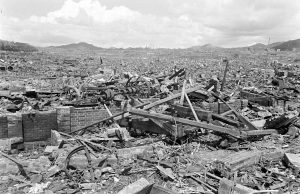
The two Atomic Bombs dropped, changed the world. They were both the first, and the last times Atomic Bombs were dropped in war. It was as if the world finally saw what these bombs did to people. It was as if they finally felt sick to their stomach…both sides!! During the Cold War, there were a couple of times when the United States and the Soviet Union came close to using the Atomic Bomb, but they decided that they just couldn’t do it. That said, they decided that there really was a line that should never be crossed. Since 1945, and the dropping of two of the most devastating bombs ever, mankind has finally decided that we should not go there again, thankfully.
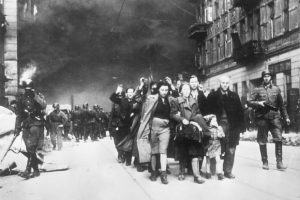 When Hitler began his systematic genocide of the Jewish people during World War II, many of the previously free people found themselves suddenly jailed. They had no weapons with which to fight for their freedom, but they knew that they were going to have to make a decision to either fight for their lives, or lose their lives. Some were too old or too young to fight, and some were women, and many men didn’t think these women could handle the fight at hand, but at some point they would have to fight or die. Hitler was relentless, and the Jewish people were fighting for their lives.
When Hitler began his systematic genocide of the Jewish people during World War II, many of the previously free people found themselves suddenly jailed. They had no weapons with which to fight for their freedom, but they knew that they were going to have to make a decision to either fight for their lives, or lose their lives. Some were too old or too young to fight, and some were women, and many men didn’t think these women could handle the fight at hand, but at some point they would have to fight or die. Hitler was relentless, and the Jewish people were fighting for their lives.
When Hitler set his plan in motion, he made it impossible for them to do business. Overnight, all Jewish businesses were blackballed. That was how it started anyway. The Jewish people were no longer allowed to do business with non-Jews. That action meant that the income that these successful Jewish people had, was instantly taken from them…symbolically. Later, It would be taken in every way. Their shops were looted, their property confiscated, and their homes given to others. As the Jewish people were banished to the ghettos, they had just moments to pack a small bag with the things they could carry, or more importantly the things they couldn’t do without…clothing, any food items, and keepsakes. It wasn’t much. There wasn’t room for much.
The ghettos were complete pits of filth, disease, and humanity. People were piled into cramped quarters, forced to share living quarters with people they didn’t know. Of course, the tight quarters was not the worst thing about the ghettos. The people had no rights. If a Nazi soldier raped, beat, or shot a Jewish person, there was no punishment, because they were no longer considered human, and therefore had no rights. Although it was considered an abomination to sleep with a Jewish person, rape was actually considered just another form of punishment. The Nazis didn’t care. A death meant one less Jew to have to house.
The Warsaw ghetto in Poland occupied an area of less than two square miles but soon held almost 500,000 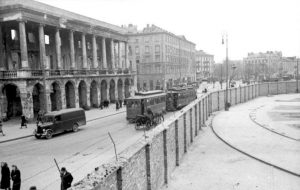 Jews in the deplorable conditions common to ghettos. Disease and starvation killed thousands every month, and when death did not come fast enough, the Jews were transferred to the next level of their torture. Beginning in July 1942, 6,000 Jews per day were transferred to the Treblinka concentration camp. They went by way of cattle cars, packed so tightly that it was standing room only. In fact, if a prisoner died along the way, their body remained standing…held up by the people so tightly packed in around them.
Jews in the deplorable conditions common to ghettos. Disease and starvation killed thousands every month, and when death did not come fast enough, the Jews were transferred to the next level of their torture. Beginning in July 1942, 6,000 Jews per day were transferred to the Treblinka concentration camp. They went by way of cattle cars, packed so tightly that it was standing room only. In fact, if a prisoner died along the way, their body remained standing…held up by the people so tightly packed in around them.
As word got back to the ghettos that the death rate of those being transferred to the camps, either on the trains, or in the gas chambers when they reached their final destination, the Jewish people knew that something was going to have to be done. They would have to fight for their lives. Of course, the resistance was already working. There were those who saw the writing on the wall from the start. When word came down that the Warsaw ghetto was going to be closed and the Jews deported to the camps, it was time.
On January 18, 1943, as Nazi forces were attempting to clear out the Warsaw ghetto they were met by gunfire from Jewish resistance fighters. Although the Nazis assured the remaining Jews that their relatives and friends were being sent to work camps, they no longer believed the Nazi lies. An underground resistance group had been established in the ghetto, called the Jewish Combat Organization (ZOB). Limited arms had been acquired at great cost, and it didn’t matter, because this was a fight to the death. As the Nazis entered, the ZOB unit ambushed them, killing a number of German soldiers. The fighting lasted for several days.
On January 18, 1943, when the Nazis entered the ghetto to transport a group of Jewish prisoners, a ZOB unit ambushed them. Fighting lasted for several days, and a number of Germans soldiers were killed before they withdrew. On April 19th, Heinrich Himmler announced that the ghetto was to be emptied of its residents in honor of Hitler’s birthday the next day. I guess Himmler thought murdering all those people would make a great birthday gift for Hitler. That day, more than 1,000 SS soldiers entered the confines of the ghetto, armed with tanks and heavy artillery. Of the 60,000 Jews remaining in the ghetto hid in secret bunkers, more than 1,000 of the ZOB resistance members took up arms and fought back with gunfire and homemade bombs. Again the soldiers withdrew, despite only suffering moderate casualties. Then on April 24th, the Germans and launched an all-out attack against the Warsaw Jews.
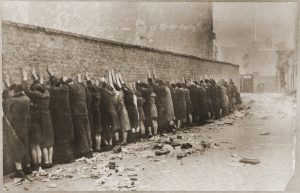 The German soldiers stormed through the ghetto, blowing up buildings everywhere. They slaughtered thousands of innocent people. The ZOB took to the sewers to continue the fight. It was cover, but how awful. Then, on May 8th their command bunker fell to the Germans and their resistant leaders committed suicide. I’m sure they thought they had failed their people. By May 16th, the ghetto was firmly under Nazi control, and the last Warsaw Jews were deported to Treblinka. Some 300 German soldiers were killed, and thousands of Warsaw Jews were massacred during the Warsaw Uprising, but that wasn’t the end of the death. Virtually all those who survived the Uprising to reach Treblinka were dead by the end of the war.
The German soldiers stormed through the ghetto, blowing up buildings everywhere. They slaughtered thousands of innocent people. The ZOB took to the sewers to continue the fight. It was cover, but how awful. Then, on May 8th their command bunker fell to the Germans and their resistant leaders committed suicide. I’m sure they thought they had failed their people. By May 16th, the ghetto was firmly under Nazi control, and the last Warsaw Jews were deported to Treblinka. Some 300 German soldiers were killed, and thousands of Warsaw Jews were massacred during the Warsaw Uprising, but that wasn’t the end of the death. Virtually all those who survived the Uprising to reach Treblinka were dead by the end of the war.
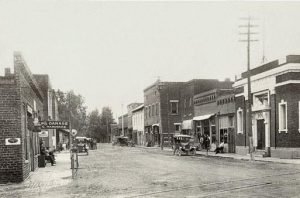 Jessie Earl, who was born in Crawfordville, Indiana on April 22, 1887 to John and Amanda (Tracy) Earl, was a very resourceful, and brave girl, although not many people would have known that had she not found herself in the situation she did on a Monday in December, 1901. School was over for the day, and Jessie was walking home. Her family was living in Advance, Indiana then, which was a small town about 15 miles west of Crawfordsville. Jessie’s walk took her beside the train tracks for a about a mile.
Jessie Earl, who was born in Crawfordville, Indiana on April 22, 1887 to John and Amanda (Tracy) Earl, was a very resourceful, and brave girl, although not many people would have known that had she not found herself in the situation she did on a Monday in December, 1901. School was over for the day, and Jessie was walking home. Her family was living in Advance, Indiana then, which was a small town about 15 miles west of Crawfordsville. Jessie’s walk took her beside the train tracks for a about a mile.
As Jessie was walking along she saw that the railroad trestle she passed every day was on fire. She immediately headed to find someone to warn, but at that moment she heard the train whistle. She knew she was out of time, and she would have to save the train herself. I can’t imagine a girl of just 13 years having the courage to do what she did next. The train, Chicago and Southwestern Railroad’s east-bound passenger train, was headed for serious danger, and no one knew what was happening…except a 13 year old girl. Jessie, however, was no ordinary girl.
She saw that the train was headed toward the burning trestle at full speed. By the time they saw the fire, it would be too late to stop the train. Jessie immediately dropped her basket and rushed down the track toward the train, running as fast as she could. She started waving her apron, to attract the attention of the engineer, who upon seeing the little girl, brought the train to a safe stop. I’m sure that his first thought was, “What is this crazy girl doing?” Nevertheless, he made the quick decision to stop to find out what the emergency was.
Upon inspection, the crew found that the burning trestle would never have held the weight of the train, and the resulting crash and derailment would have been catastrophic for the passengers and crew. When they saw what Jessie had saved them from, the crew and passengers almost smothered the little girl with congratulations for her brave act and gave her many mementoes as rewards for saving the train from plunging into the creek, 30 feet below. Of course, like most heroes, Jessie just thought she had done what any other person would do. 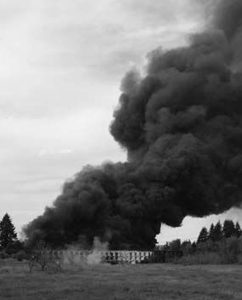 Still, you never know. We have all witnessed people walking right by a person lying on the ground, or driving past the scene of an accident without lending aid, or worse yet, filming it on their smart phones to post on the internet. Of course, the internet didn’t exist then, but I like to think it wouldn’t have mattered to little Jessie Earl. I like to think that she would have done what she did either way, because Jessie Earl seems like a heroic kind of girl.
Still, you never know. We have all witnessed people walking right by a person lying on the ground, or driving past the scene of an accident without lending aid, or worse yet, filming it on their smart phones to post on the internet. Of course, the internet didn’t exist then, but I like to think it wouldn’t have mattered to little Jessie Earl. I like to think that she would have done what she did either way, because Jessie Earl seems like a heroic kind of girl.
Sadly, I don’t have a picture of Jessie Earl, but I learned that she married Howard Bratton, and they three children…Dorthea, James, and Opal who went on to give them children and grandchildren. I wonder if they know that their grandmother and great grandmother was a true hero. I wonder if Jessie’s children ever knew. I wouldn’t be surprised to find that they didn’t. Jessie passed away on February 15, 1940, in Muncie, Indiana. She was 52 years old.
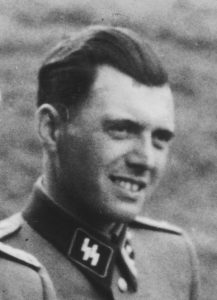
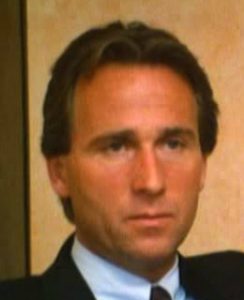 Rolf Mengele was born in March 16, 1944 in Freiburg, Germany to Irene Schoenbein and Dr Joseph Mengele…also known as the Angel of Death, but his father went into hiding after the war, and escaped to Argentina in 1949. Because of this, Rolf grew up in a loving home with his grandparents and his mother. He didn’t meet his father until he was a teenager, because he was told that he was dead.
Rolf Mengele was born in March 16, 1944 in Freiburg, Germany to Irene Schoenbein and Dr Joseph Mengele…also known as the Angel of Death, but his father went into hiding after the war, and escaped to Argentina in 1949. Because of this, Rolf grew up in a loving home with his grandparents and his mother. He didn’t meet his father until he was a teenager, because he was told that he was dead.
When he turned 16, Rolf learned that his father was actually alive when Joseph made contact with him. It was an unhappy revelation for him. His father made attempts to bond with him through letters, even writing and illustrating a children’s book for him, but to no avail. His father’s attempts didn’t stop the feelings of disgust he felt about his father’s beliefs and actions. Still, at 16, he felt a curiosity about his dad, and wanted to meet him. Since Joseph Mengele was still wanted by Nazi-Hunters, for his war crimes, it took Rolf 5 years to arrange a trip to Brazil to visit his father.
Rolf had to travel under a stolen passport, but he wanted to go, because he wanted to understand how his father could have been an active participant in the Nazi death machine. He didn’t wait long, after his arrival, to bring up the subject of Auschwitz. His dad immediately became defensive, denying any responsibility for the atrocities, but actually admitting to participating in the nightmare “experiments” that the Jewish people were subjected to. He acted like he was doing them a favor, saying, “What was I supposed to do with those people? They were sick and half-dead when thy arrived.” He tried to tell his son that all he was doing was to determine who was fit to work. He actually claimed to have saved several thousand people by allowing them to work.
After his visit, Rolf found it “impossible to betray his father’ location,” but his feelings of disgust remained with him for the rest of his father’s life. Rolf says, “I didn’t even bother to listen to him or think of his ideas. I simply rejected everything he presented. I will never understand how human beings 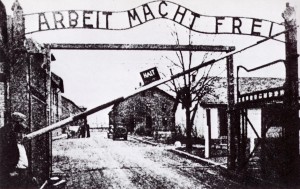 could do those things. That my father was one of them doesn’t change my opinion.”
could do those things. That my father was one of them doesn’t change my opinion.”
Joseph Mengele’s health began to deteriorate in 1972. In 1976 he suffered a stroke. Then on February 7, 1979, he had another stroke while swimming in the Atlantic Ocean off of Bertioga, Brazil during a visit with friends. He drown and was buried under the alias of Wolfgang Gerhard, which he had been using since 1971. Rolf abandoned the Mengele name in 1980, taking his wife’s last name to spare his children the burden of their grandfather’s past. Rolf and his family live in Freiburg, Germany, where he is an attorney.
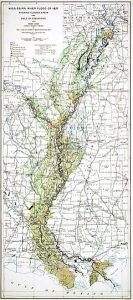 The Mississippi River is a is the widest river in the United States. It’s mere size and the amount of water in it, makes one expect that at some point, it is going to flood. In fact, it has flooded many times over the years, but none was anything like the Great Mississippi Flood of 1927. It was the most destructive river flood in the history of the United States. In all, 27,000 square miles of land were inundated with water up to a 30 feet depth. In all, 630,000 people were affected by the flood. About 94% of them lived in the states of Arkansas, Mississippi, and Louisiana, most in the Mississippi Delta. At least 15 inches of rain fell in 18 hours causing the Mississippi River to brake out of its levee system at 145 locations. Ten states were affected…Arkansas, Illinois, Kentucky, Louisiana, Mississippi, Missouri, Tennessee, Texas, Oklahoma, and Kansas. Arkansas was the worst affected with 14% of the state flooded.
The Mississippi River is a is the widest river in the United States. It’s mere size and the amount of water in it, makes one expect that at some point, it is going to flood. In fact, it has flooded many times over the years, but none was anything like the Great Mississippi Flood of 1927. It was the most destructive river flood in the history of the United States. In all, 27,000 square miles of land were inundated with water up to a 30 feet depth. In all, 630,000 people were affected by the flood. About 94% of them lived in the states of Arkansas, Mississippi, and Louisiana, most in the Mississippi Delta. At least 15 inches of rain fell in 18 hours causing the Mississippi River to brake out of its levee system at 145 locations. Ten states were affected…Arkansas, Illinois, Kentucky, Louisiana, Mississippi, Missouri, Tennessee, Texas, Oklahoma, and Kansas. Arkansas was the worst affected with 14% of the state flooded.
It was Good Friday, April 15, 1927, the disaster began when 15 inches of rain fell in New Orleans in 18 hours. More than 4 feet of water covered parts of the city. A group of influential bankers in town met to discuss how to guarantee the safety of the city, as they had already learned of the massive scale of flooding upriver. A few weeks after, they arranged to set off about 30 tons of dynamite on the levee at Caernarvon, in an effort to flood a less populated area and save the cities that would have been severely damaged. I’m not sure how much this effort helped, and in the end, about 500 people lost their lives anyway. It wouldn’t be the last Mississippi River flood, but it would be the worst.
As a result of the flooding, many of the misplaced people joined the Great Migration from the south to northern and midwestern industrial cities rather than return to rural agricultural labor. I would think that the idea of such a massive amount of cleanup would be more than many people could take. This massive population movement increased from World War II until 1970. Of course, this volume of population movement would not be good for the states who were losing people. To try to prevent future floods, the federal government built the world’s 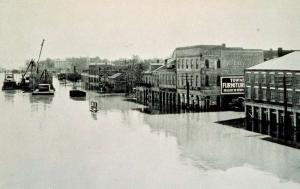
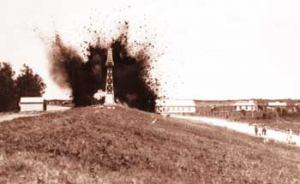 longest system of levees and floodways. By August 1927, when the flood subsided, hundreds of thousands of people had been made homeless and displaced; properties, livestock and crops were destroyed. Flooding on the Mississippi is not an unusual event, and no matter how many precautions we take, there will still be losses when the river overflows its banks.
longest system of levees and floodways. By August 1927, when the flood subsided, hundreds of thousands of people had been made homeless and displaced; properties, livestock and crops were destroyed. Flooding on the Mississippi is not an unusual event, and no matter how many precautions we take, there will still be losses when the river overflows its banks.
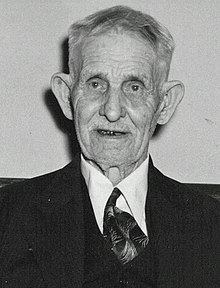
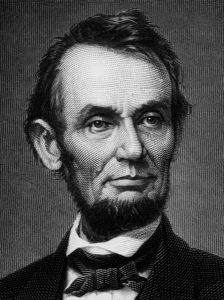 Imagine being a witness to a part of history. Of course, we all are. We witness our part of history, because history happens all around us. It’s just that some events are more. More what you might ask. More devastating, more tragic, more exciting, just more. One such event was the assassination of President Lincoln. I can’t begin to imagine what it would have been like to go out for a night at the theater only to have the evening shattered be gunfire…and then to look up and see that your President was slumped over, bleeding, and dying. Now imagine you were just a child at the time.
Imagine being a witness to a part of history. Of course, we all are. We witness our part of history, because history happens all around us. It’s just that some events are more. More what you might ask. More devastating, more tragic, more exciting, just more. One such event was the assassination of President Lincoln. I can’t begin to imagine what it would have been like to go out for a night at the theater only to have the evening shattered be gunfire…and then to look up and see that your President was slumped over, bleeding, and dying. Now imagine you were just a child at the time.
That was the situation Samuel Seymour found himself in on April 14, 1865. On April 14, 1865, Seymour was five years old, when his godmother, who was the wife of his father’s employer took him to see Our American Cousin at Ford’s Theater in Washington DC. They were sitting in the balcony across the theater from the Presidential box. Everyone knew President Lincoln. I don’t know how star struck people got back then. Not nearly as much as today, but everyone knew him. A while later, says Seymour, “All of a sudden a shot rang out…and someone in the President’s box screamed. I saw Lincoln slumped forward in his seat.” Suddenly, John Wilkes Booth jumped from the box to the stage. What five year old boy wouldn’t remember those two events. Of course, Seymour didn’t understand what had happened to President Lincoln, 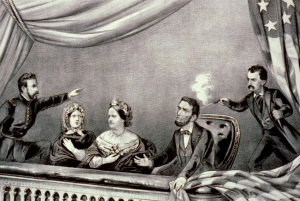 but he was very concerned for Booth, who broke his leg in the jump. He was just a child.
but he was very concerned for Booth, who broke his leg in the jump. He was just a child.
As a child, Seymour was the youngest person in the theater. Most, if not all of the people there were adults. Two months before his death, Seymour appeared on the February 9, 1956, broadcast of the CBS TV panel show “I’ve Got a Secret.” Seymour was hurt in a fall prior to the show, and the show’s producers had urged Seymour to postpone his appearance on the show. Seymour’s doctor left the choice up to Seymour, Seymour chose to go on. During the panelists correctly guessed that Seymour witnessed the assassination of Lincoln. Seymour died on April 12, 1956, and with that, the last witness to Lincoln’s assassination was gone.
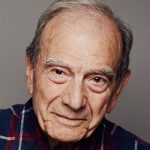 I’ve heard that in some cases, inmates who have proven themselves can become an inmate guard. I don’t know of the validity of this practice, but I do know that during the reigning Third Reich, many Jewish prisoners were forced to become guards, or Sonderkommandos, in the camps that housed the Jews. It wasn’t a paid position, or even one with added security or benefits. It was a force position…one for which the penalty of failure was death.
I’ve heard that in some cases, inmates who have proven themselves can become an inmate guard. I don’t know of the validity of this practice, but I do know that during the reigning Third Reich, many Jewish prisoners were forced to become guards, or Sonderkommandos, in the camps that housed the Jews. It wasn’t a paid position, or even one with added security or benefits. It was a force position…one for which the penalty of failure was death.
For almost three years, 2,000 Sonderkommandos did such work under threat of execution. Their fellow prisoners despised them. Everyone knew who they were, and what they did. The Sonderkommandos were both feared and hated by their fellow prisoners!! The horrors they had to endure new no bounds. Some even had to dispose of the corpses of their relatives and neighbors. I can’t imagine having to carry off a dead relative to be thrown into a mass grave without even so much as a few words said over them. The Sonderkommandos no only had to do that, but then they had to either go back to, or continue working, as if nothing had happened at all.
Being a Sonderkommando did nothing to ensure that they would survive the war, or even the next month, because the Germans either out of necessity, or just brutality, replace the Sonderkommandos every six months. I’m sure these people knew, when they were placed in the position, that their days were numbered. The problem with being a Sonderkommando was not that they fought against doing their jobs, or tried to escape, it was that they simply knew too much. These people were eyewitnesses to the atrocities of the Holocaust, and therefore a liability. They could put the Germans in prison for crimes against humanity. The Nazis could not let that happen, so they used the Sonderkommandos for six months, then killed them and replaced them with another one.
Because of this practice, only a hundred or so survived the war. These survivors were eyewitnesses to the exterminations that Holocaust deniers challenge. They were to become some of the Nazis worst nightmares. One man…Dario Gabbai, a Greek Jew, who was imprisoned at Auschwitz, is quite possibly the last of the Sonderkommandos, and certainly one of the most prominent. Gabbai settled in California after the war and 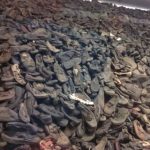 described the grim work he did in a handful of Holocaust documentaries…including “The Last Days,” which won an Academy Award for best documentary in 1999. The things Gabbai had to while he was a Sonderkommando at Auschwitz would haunt him for the rest of his life. People who have been forced to participate in horrible atrocities often blame themselves for the participation. Somehow, while logic tells us that there was nothing he could have done to stop the nightmare, he thinks he should have refused to do it, even if it meant his own death. He thinks himself a coward for being afraid to die, or for wanting desperately to live.
described the grim work he did in a handful of Holocaust documentaries…including “The Last Days,” which won an Academy Award for best documentary in 1999. The things Gabbai had to while he was a Sonderkommando at Auschwitz would haunt him for the rest of his life. People who have been forced to participate in horrible atrocities often blame themselves for the participation. Somehow, while logic tells us that there was nothing he could have done to stop the nightmare, he thinks he should have refused to do it, even if it meant his own death. He thinks himself a coward for being afraid to die, or for wanting desperately to live.
Of course, he wasn’t a coward. The very fact that he did survive makes him a hero. He was able to document the Holocaust and later relate what he witnessed. When his family reached Auschwitz, Dario’s father, mother, and younger brother were sent to the gas chambers. His sister had died as an infant, before Auschwitz. Dario and his brother, Jakob, were young…in their 20’s and strong, so they were made Sonderkommandos. He recalls seeing the doomed Jewish people taken into the gas chambers, under pretense of having a shower. Then, he remembers hearing the screams of the women and children…the crying and scratching on the walls as they desperately tried to get out…and the desperate gasping efforts to keep breathing, and then…the deathly silence. When the doors opened, the Sonderkommandos had to climb over bodies piled five and six feet high to harvest glasses, gold teeth and prosthetic limbs, before hauling out the corpses and washing down floors and walls covered in blood and excrement. Gabbai said, “I saw the people I just saw alive, the mother with the kids in their arms, some black and blue from the gas, dead. I said to myself — my mind went blind, how can I survive in this environment?” Gabbai and other Sonderkommandos had to drag the bodies to an elevator that would lift them one flight to the furnace floor. There was also a dissecting room, where jewels and other valuables hidden in body crevices would be removed. To endure such grim work, Gabbai said, he “shut down” and became an “automaton.”
The Germans preferred less common nationalities like Greek and Ladino-speaking Jews for these tasks, because they could not easily communicate the precise details of the factorylike slaughter to Polish, Hungarian and other European inmates. “They had seen too much and known too much,” Mr. Berenbaum, long-time friend of Gabbai said. It is no wonder Gabbai only wanted to get away…far away to California, after the war. When 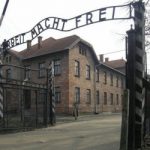 Gabbai was liberated, he weighed 100 pounds. He couldn’t face his haunting memories. He needed to get away from all German memories. He made his way to Athens, where he helped settle refugees for the American Jewish Joint Distribution Committee. In 1951, he immigrated to the United States through the sponsorship of the Jewish community of Cleveland, and two years later he moved to California for “its beautiful beaches, beautiful women and sunshine,” he told Mr Berenbaum. In California Gabbai finally found, if not peace, at least a light beyond the darkness of his past. In the mid-1950s, he married Dana Mitzman. They divorced, but had a daughter, Rhoda, who survives him. He passed away on March 25, 2020, at 97 years old, in California. Whether Gabbai ever achieved peace with his past or not will never be known.
Gabbai was liberated, he weighed 100 pounds. He couldn’t face his haunting memories. He needed to get away from all German memories. He made his way to Athens, where he helped settle refugees for the American Jewish Joint Distribution Committee. In 1951, he immigrated to the United States through the sponsorship of the Jewish community of Cleveland, and two years later he moved to California for “its beautiful beaches, beautiful women and sunshine,” he told Mr Berenbaum. In California Gabbai finally found, if not peace, at least a light beyond the darkness of his past. In the mid-1950s, he married Dana Mitzman. They divorced, but had a daughter, Rhoda, who survives him. He passed away on March 25, 2020, at 97 years old, in California. Whether Gabbai ever achieved peace with his past or not will never be known.

 On this the 50th anniversary of the Apollo 13 near disaster, I am reminded of the tenacity of the human spirit. The space program was becoming commonplace, and while the plan was to televise parts of the mission, the networks decided not to play the program, because space travel had become mundane…nothing new happened, and it was then, as it is now, that sensationalism sells news. Then, completely unexpectedly, everything changed. Our astronauts were in serious trouble. After the explosion that would render the space capsule useless, and those famous words were uttered, “Houston, we’ve had a problem here,” everyone wanted to follow this very serious situation. Now it was important to watch this previously mundane mission.
On this the 50th anniversary of the Apollo 13 near disaster, I am reminded of the tenacity of the human spirit. The space program was becoming commonplace, and while the plan was to televise parts of the mission, the networks decided not to play the program, because space travel had become mundane…nothing new happened, and it was then, as it is now, that sensationalism sells news. Then, completely unexpectedly, everything changed. Our astronauts were in serious trouble. After the explosion that would render the space capsule useless, and those famous words were uttered, “Houston, we’ve had a problem here,” everyone wanted to follow this very serious situation. Now it was important to watch this previously mundane mission.
The reactions, both before and after the explosion, are completely normal. People tend to look for the excitement is life to keep them interested…good or bad excitement. We find ourselves glued to the television after a disaster, hoping to learn something new. We are the same way about exciting good news, but with the Apollo 13 mission, the news of another lunar landing wasn’t new. We had seen it all before…until it all went wrong. The NASA families, and especially the families of the astronauts in trouble, were less than impressed by the sudden interest in their men onboard Apollo 13, and I can understand why. It seemed no one cared, until it went wrong. Yes, the people wanted the men home safely, but it was the drama that drew them to the situation, and finally, had us thinking about something outside of ourselves. Yes, all turned out great in the end, and the men came home safely, but the space program didn’t increase in importance in our lives…until the next disaster, that is.
It’s not that we, the people are not interested in anything that doesn’t keep us riveted to our chair, staring at the news, but that we tend to overlook much of what is going on around us, until it affects us. Take the Coronavirus for example. Diseases come and go, and provided it doesn’t impact us or the ones we love, most diseases come and go with little notice by the general public. That’s why pandemics are so widely televised and watched. The affect everyone, in one way or another. We might know someone who has it, or have people in the disease hotspots, or have someone working in healthcare who is dealing with it, or we might just find ourselves drawn to the situation because we are one nation living in one world. Whatever our reason, suddenly we are interested, and that’s when we step outside of ourselves.
I have been very moved by the response of the American people during the Coronavirus Pandemic. We have seen people making medical masks for the hospitals, collecting food for those in need, and going to the store for those who can’t. We have seen people cheering the first responders, healthcare workers, grocery store workers, and food workers, who have all stayed on the job, to keep things running smoothly. We have other businesses that have had to stay open too…the banks, insurance agencies, sanitation workers, street workers, agriculture workers, military and national guard members, and a number of others. All these people are heroes. We could not stay at home, like we have been asked to do, if these heroes didn’t get up and go to work every  day, despite personal risks. As President Trump has said, we are at war…fighting an invisible enemy, so anyone who leaves their house takes a certain measure of risk of contracting the disease. Those who go to work are the bravest people we have. We owe them so much. We have also seen many people who have changed up their entertainment mediums, and have started giving free concerts on the internet. Churches have started streaming services. Choirs from many other areas have put together “social distancing” performances. All these things are designed to keep our spirits up…something we all need in these trying times. The thing that I find the most amazing is how we have all came together, how we stepped outside of ourselves to make a difference.
day, despite personal risks. As President Trump has said, we are at war…fighting an invisible enemy, so anyone who leaves their house takes a certain measure of risk of contracting the disease. Those who go to work are the bravest people we have. We owe them so much. We have also seen many people who have changed up their entertainment mediums, and have started giving free concerts on the internet. Churches have started streaming services. Choirs from many other areas have put together “social distancing” performances. All these things are designed to keep our spirits up…something we all need in these trying times. The thing that I find the most amazing is how we have all came together, how we stepped outside of ourselves to make a difference.
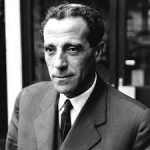
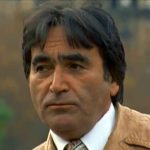 As Hitler’s vicious plan to wipe out the Jewish people started to come together, many Jewish people found their lives ripped away from them, and then, found themselves in the ghettos…if they were lucky, or the “work” camps…if they weren’t. Eventually the plan was to move all the Jews to the camps, or to transport them into the woods and shoot them. Once people were moved into the camp, there was pretty much one way out of there…death. The people dreamed of escaping the camps, but it was futile…until April 10, 1944.
As Hitler’s vicious plan to wipe out the Jewish people started to come together, many Jewish people found their lives ripped away from them, and then, found themselves in the ghettos…if they were lucky, or the “work” camps…if they weren’t. Eventually the plan was to move all the Jews to the camps, or to transport them into the woods and shoot them. Once people were moved into the camp, there was pretty much one way out of there…death. The people dreamed of escaping the camps, but it was futile…until April 10, 1944.
Rudolf Vrba and Alfred Wetzler came from the same hometown of Trnava in Slovakia. Being from the same town, they knew they could trust each other. The two men were determined to escape from Auschwitz so they could somehow let the rest of the world know what was going on there. Every day, they probed Auschwitz for weaknesses. While they searched, they were formulating escape plans. Day after day they rejected plans that they knew would only get them killed, and spoil their chances of completing their mission to save their people. Finally, one day, Fred Wetzler approached Rudi Vrba with a plan that seemed plausible. For the first time, they felt like they had a chance to succeed.
Fred told Rudolf about a pile of wooden planks stacked outside the camp perimeter waiting to be used for construction of a new facility. Fred said he knew of four prisoners planning to hide in a cavity in the middle of the wood pile. The plan was to wait for the SS guards to conclude a mandatory three-day search, and then make their escape and head south toward Slovakia. It was risky, but a few days later the plan went off without a hitch…at least the escape did. The initial strategy planned by the four prisoners, of hiding in the wood planks had worked, and they got away, but a few days later the four prisoners were caught in the village south of the camp. Rudi and Fred were worried that the four prisoners would reveal the method of their escape to the SS, but to their credit, they kept silent.
The secret of the cavity in the stack of planks stayed a secret, and a couple of weeks later, Fred and Rudi decided to attempt the same escape plan themselves. Their escape was far more successful than the escape of the first four prisoners. Once they were out of Auschwitz, Fred and Rudi had roughly 80 miles of Nazi occupied Poland ahead of them before the reached Slovakia. Their journey wasn’t a straightforward trip. They got lost and wandered around a village called Bielsko. It took them all night to find their way out and then in broad daylight, they had no choice to ask for help. They knocked on the door of a house and a woman, knowing that they were on the run, let them in and fed them. Then later that night, she gave them money, and told them how to escape through the mountains.
Of course, their journey was not without it troubles. At one point, they crossed paths with a German patrol. A gun shot sent them scrambling for cover. They heard dogs howling, and as they were running they came upon a stream. It would save them in the end. The water hid their scent, and while the water was freezing, they crossed the stream, and escaped. More strangers helped them along their journey, and against all odds, the two men made it to the Polish-Slovak borer.
On April 21st, 1944, fourteen days after they emerged from the stack of planks, Rudi Vrba and Fred Wetzler reached Slovak soil. Once inside Slovakia, they met yet another sympathetic peasant who brought them to a prominent doctor in the town of Cadca. The doctor listened to their story and said, “Tomorrow I’ll take you to the leaders of the Jewish community in Zilina. They’ll know what’s best to do.” For the rest of his life, Rudolf Vrba, who had escaped from Auschwitz determined to warn the world about the death factory before another train load of Jews could be shipped there, wished the doctor had been right.
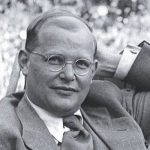 I think we have all thought that the German people were in agreement with the Nazis, but there were, in fact, many German people who fought hard for the other side. One such person who was active in the German resistance was Dietrich Bonhoeffer, who was a Protestant Lutheran Pastor and theologian. He hated Nazism and Hitler’s horrific ideas, and his strong hatred of these things brought him to a place of knowing that he had to do something…anything to stop the murderous regime.
I think we have all thought that the German people were in agreement with the Nazis, but there were, in fact, many German people who fought hard for the other side. One such person who was active in the German resistance was Dietrich Bonhoeffer, who was a Protestant Lutheran Pastor and theologian. He hated Nazism and Hitler’s horrific ideas, and his strong hatred of these things brought him to a place of knowing that he had to do something…anything to stop the murderous regime.
Bonhoeffer was born February 4, 1906 in Breslau, Germany. His family were not religious, but had a strong musical and artistic background. From his childhood days, Bonhoeffer displayed great musical talent, and the pursuit of music was important to him throughout his life. As he grew, I’m sure his family had great plans for his musical future…hoping for him to be a famous musician. When Bonhoeffer turned 14, he announced that he wanted to train and become a priest…a revelation that completely shocked his family.
Despite their displeasure at his announcement, Bonhoeffer attended the University of Berlin, graduating in 1927 with a doctorate in theology for his influential thesis, Sanctorum Communio, which means Communion of Saints. After his graduation, Bonhoeffer spent time in Spain and America. This was likely a good thing, because it gave him a wider outlook on life and helped him move from academic study to a more practical interpretation of the Gospels. He became quite interested in the concept of the Church’s involvement in social justice and protection of those who were oppressed. His wide travels also encouraged a greater interest in ecumenism, which is the outreach to other churches.
At the age of 25, Bonhoeffer was ordained as a priest. Because the early 30’s were a period of great upheaval in Germany, with the instability of Weimar Germany and the mass unemployment of the Great Depression leading to the election of Adolf Hitler in 1933. Hitler was elected as Chancellor in January 1933. He was very charismatic, and therefore, widely welcomed by most of the German people, including large parts of the church, but Bonhoeffer saw through the façade, and remained a firm opponent of Hitler’s philosophy.
Two days after Hitler’s election as Chancellor in Jan 1933, Bonhoeffer made a radio broadcast criticizing Hitler, and in particular the dangers of the idolatrous cult of the Fuhrer. The radio broadcast was almost immediately cut off. Apparently, Hitler already had a large amount of control of the information people received. Being an opponent of Hitler in those days was not looked upon favorably, and unfortunately, they did not have the freedom of speech that we enjoy in the United States.
Many people and even churches were fooled by Hitler, and before they realized it, they had lost the right to do anything about it. Bonhoeffer tried to organize the Protestant Church to reject the Nazi ideology, but they did not listen so he had to breakaway from the church where he was ordained. In April 1933, The Confessing Church which Bonhoeffer helped form with Martin Niemoller, was born. The Confessing Church sought to stand in contrast to the Nazi-supported, German Christian movement. Bonhoeffer felt disillusioned by the weakness of the church and opposition, and in the autumn of 1933, he took a two-year appointment to a German-speaking Protestant church in London.
After two years in London, Bonhoeffer returned to Berlin. He felt like he should be with his native country and  share in its struggles, even if it looked like there was no hope. Shortly after his return, one leader of the Confessing Church was arrested and another fled to Switzerland. Bonhoeffer’s authorization to teach revoked in 1936. He could not teach after being denounced as a pacifist and enemy of the state. Things grew steadily worse, and finally, because of his opposition to the Nazi regime, Bonhoeffer was arrested. He was “sentenced” to death and on April 9, 1945, was executed at the Flossian concentration camp. It was the last month of the war. He had almost survived. He remains an important symbol of opposition to Hitler, and his views on Christianity continue to be influential.
share in its struggles, even if it looked like there was no hope. Shortly after his return, one leader of the Confessing Church was arrested and another fled to Switzerland. Bonhoeffer’s authorization to teach revoked in 1936. He could not teach after being denounced as a pacifist and enemy of the state. Things grew steadily worse, and finally, because of his opposition to the Nazi regime, Bonhoeffer was arrested. He was “sentenced” to death and on April 9, 1945, was executed at the Flossian concentration camp. It was the last month of the war. He had almost survived. He remains an important symbol of opposition to Hitler, and his views on Christianity continue to be influential.

